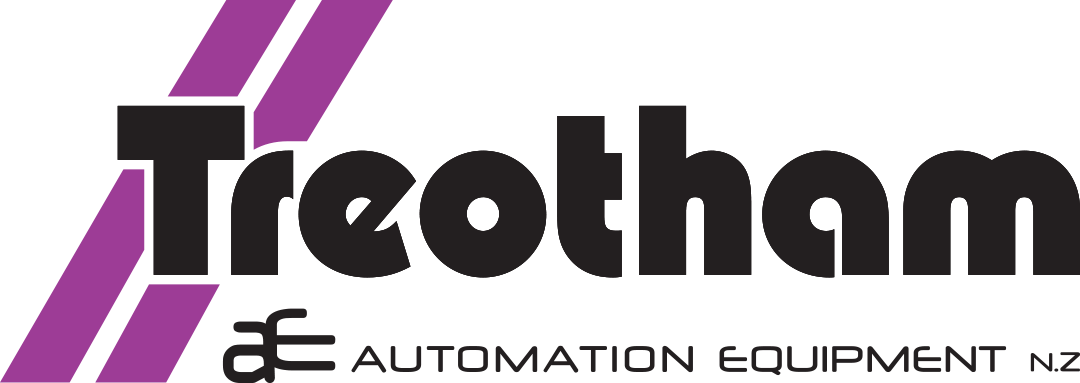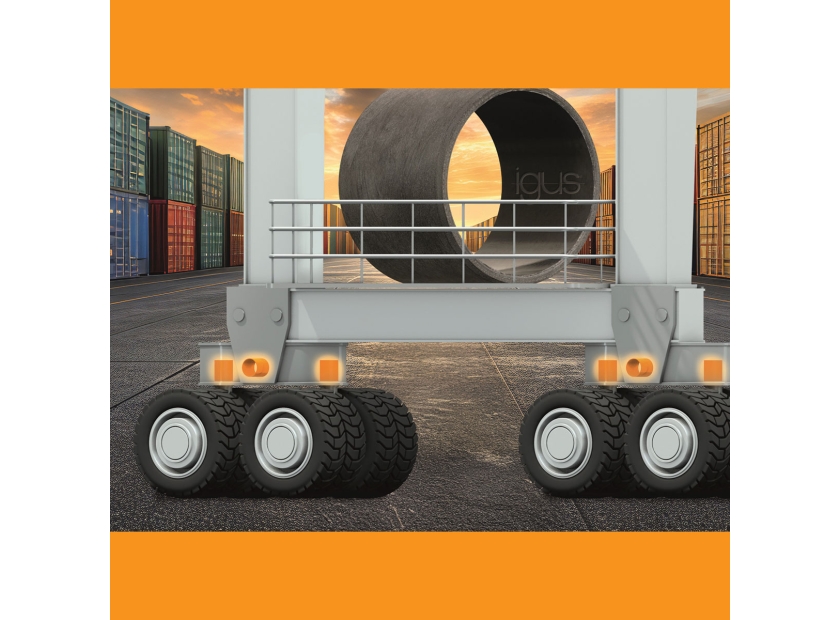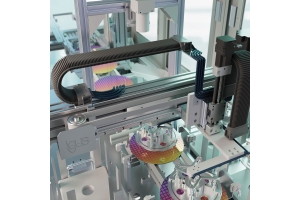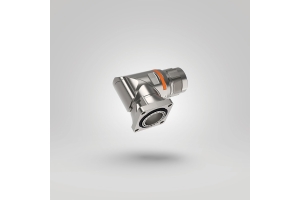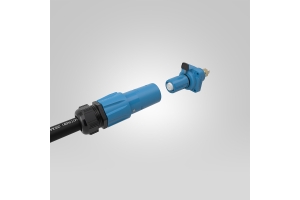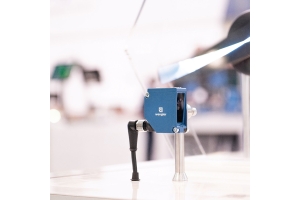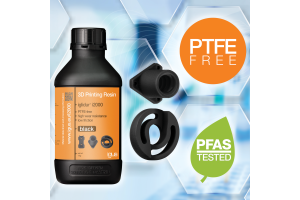igutex plain bearing technology
Posted:
July 22, 2024
Categories:
Igubal
igutex plain bearing technology: belt and braces thanks to double winding
igus presents lubrication-free and corrosion-resistant polymer bearings for STS, RTG and RMG cranes
Handling containers around the clock under extreme conditions - this is the daily routine of STS, RMG and RTG cranes in ports around the world. However, premature wear and breakdowns of the wheel and axis units, the bogies, place an enormous burden on operators. In Rotterdam, igus will be presenting a solution at TOC Europe from 11th to 13th June 2024: wound, lubrication-free and corrosion-resistant polymer bearings from the igutex series for heavy-duty applications.
Ship-to-shore (STS) cranes, as well as rubber-tired gantry (RTG) and rail-mounted gantry (RMG) cranes, work in the most adverse conditions all year long - including dirt, dust, salty air, heat and cold. Some components respond to this extreme strain with premature wear, such as the bearings of the so-called bogies, the wheel and axis units that move an STS crane weighing several tonnes along rails, for example. Uwe Sund, Product Manager for iglidur Heavy-Duty Bearings at igus, knows from experience that this often causes system failures: "Every downtime costs money, takes time and is a burden that ports can afford less than ever when handling capacities are high and competitive pressure increasing." At TOC Europe 2024, Stand C54, igus will present an alternative to classic steel bearings, which repeatedly become a problem due to corrosion, rapid wear and inadequate lubrication: polymer bearings from the igutex series help ease the burden on crane operators and ports. The plain bearings made of high-performance plastic are extremely robust and wear-resistant as well as being corrosion-free and insensitive to dirt. Furthermore, they do not require any lubrication. This results in an immense cost advantage: every year, $240 billion are spent on lubrication alone in all industries worldwide. In addition, there are associated maintenance costs of at least $200 billion. And still, failures occur time and again due to insufficient lubrication, totalling $750 billion. The use of lubrication-free plain bearing technology therefore reduces maintenance costs, conserves personnel resources in times of a shortage of skilled labour and increases the service life of cranes and thus the productivity of ports.
Surface pressures of up to 200MPa are possible
igus manufactures most lubrication-free plain bearings with plastic injection moulding. However, the material structure does not offer sufficient mechanical stability for heavy-duty applications such as chassis bearing support for cranes with surface pressures of more than 80MPa. The company therefore uses igutex to manufacture composite plain bearings in a two-stage winding process. To do this, the winding machine first produces an inner layer of filament fabric with integrated solid lubricants. The microscopically small lubricant particles are gradually released during movement and enable dry operation with low coefficients of friction. In the second winding, a protective outer shell is created from a resin-impregnated and particularly hard-wearing fibreglass fabric. "Thanks to this two-stage winding, the polymer bearings in the igutex series achieve a maximum permissible surface pressure of up to 200MPa," says Sund. "This means that the polymer bearings are robust enough to work in STS cranes with low wear and fail-safe operation."
Polymer bearings beat steel and bronze bearings in the test
The fact that the wound polymer bearings are in fact more wear-resistant than steel bearings has been proven by igus in its own 4,000m2 test laboratory. Bearings with a diameter and length of 40mm each were loaded with 80MPa on a test rig. They swivelled 50,000 times by 50° - at a speed of 30 swivels per minute. The result: the steel bearing (15MnCr5) suffered such massive shaft wear that the engineers had to abort the test after 10,000 cycles. After the same time, the bronze bearing failed due to wear on the bearing itself. "The polymer bearing from the igutex series, on the other hand, survived the 50,000 cycles with only minimal signs of wear," says Sund. "These advantages are being recognised by more and more crane manufacturers and operators around the world. For example, the Tan Cang Gantry Joint Stock Company (TCGT) from Vietnam is equipping RTG cranes of the current generation with completely lubrication-free and maintenance-free heavy-duty bearings as part of a co-operation with igus Vietnam. However, it is not only easy to switch from metal bearings to polymer versions in new crane systems, you can also retrofit existing ones. The reason is that igus can manufacture the bearings, which usually have a diameter of 100mm and more, with identical dimensions. Application consultants are available on site to assist with the conversion.
Comment(s)
